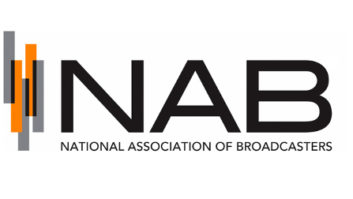The Federal Communications Commission should seek to minimize disruptions to TV viewers and FM radio listeners as it firms up how it will distribute the $1 billion additionally allocated by Congress to reimburse broadcasters for their channel relocation expenses, NAB said in comments filed Sept. 26 with the agency.
The comments, filed in reference to the FCC Notice of Proposed Rulemaking on reimbursement of repack-associated expenses to LPTV, TV translator and FM radio stations, also pointed out the agency has no reason at the moment to think the additional funds won’t cover the expenses of “all eligible entities.”
A key point in the filing centers on how Congress apportioned funding in its Reimbursement Expansion Act (REA), which passed in March. Of the $1 billion, Congress apportioned $600 million for FY 2018 and $400 million for FY 2019. The law caps FY 2018 spending at $600 million but does not restrict how the $400 million FY 2019 funds are allocated.
[Read: Comment Deadlines Set on LPTV, FM Reimbursement]
“At the outset, the plain language of the REA includes no limitations on how to allocate FY 2019 funds, in stark contrast to the express limitations for FY 2018 funds,” NAB said in the filing. The association told the commission that the language of the act “confirms that FY 2019 funds may supplement the funding levels made available in 2018.”
The NPRM sought comment on whether or not, and if so, how, reimbursement payments from FY 2019 funds should be prioritized. NAB urged the FCC only to prioritize funding if the facts prove doing so is needed. That will only become clear once FM and LPTV stations submit their cost estimates, NAB said.
“The commission presently has no reason to believe that the $1 billion Congress appropriated will prove inadequate to reimburse all eligible entities for expenses associated with repacking and a limited basis, if any, for guessing where shortfalls are likely to arise. The commission may have sufficient funds available to reimburse all eligible entities for expenses incurred during repacking, meaning that any prioritization at this point could prove unnecessary,” NAB said.
The FCC has a statutory deadline of March 23, 2019, to put in place rules for reimbursing FM and LPTV stations. Shortly after that, FM and LPTV stations will submit their estimates, and TV stations and MVPDs will have provided updated information on their repack expenses. Only then will the agency know if there won’t be adequate funds, how big the shortfall will be and how to prioritize payments, the association said. “Waiting to see whether prioritizing reimbursement will be necessary is the most reasonable approach,” the filing said.
However, if the commission insists on prioritizing payments, NAB offered its desired approach. First, allocate funds as soon as possible to make sure FM stations receive 80% of actual or estimated costs and that at least $50 million specified in FY2018 funds is allocated to FM stations; second, fully reimburse full-power and Class A TV stations being involuntarily repacked; third — if funds are available — fully reimburse FM radio stations impacted in the repack; and fourth, “use remaining funds to reimburse displaced LPTV stations and translators for any costs exceeding $150 million [which Congress set aside to cover their relocation expenses].”
In its comments, the association expressed its concerns in detail about any off-air time for radio stations. “First, the proposed off-air periods are wholly disconnected from the reality radio station owners and operators know all too well. Being off the air for a few days, which, under the NPRM’s proposal would make a station eligible for only 50% reimbursement, would have dramatic and potentially irreversible impacts on listenership. If a station is off the air for days, listeners will simply conclude that they are no longer able to receive that station’s signal, and they will stop attempting to tune in.”
The NAB also worried that smaller stations might feel left out when it came to seeking their lesser reimbursement costs and therefore would simply not broadcast rather than construct alternative transmission facilities to accommodate the repack. “If the commission adopts this proposal, many small and rural FM stations that are unable to afford covering the expenses for interim facilities on their own may simply give up and make no effort to invest in such facilities. As a result, the proposal could discourage FM stations from standing up interim facilities and deprive listeners of important service for no good reason.”
It also detailed several prospective hitches in the actual repack work such as tower lease or construction difficulties and equipment and service contractor delays
The filing is available online.












